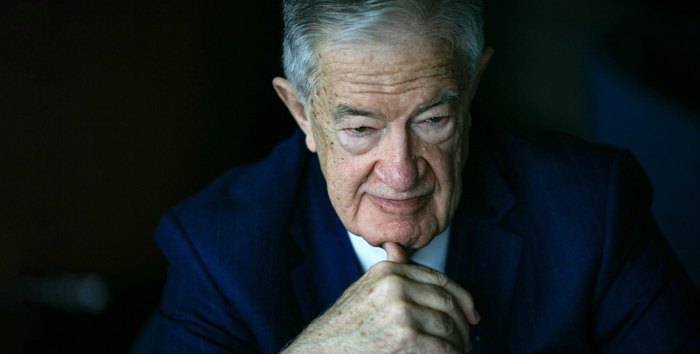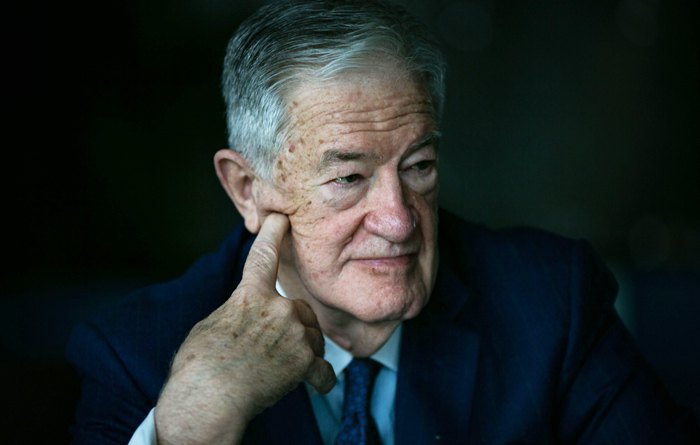 Jack Devine
Jack Devine

"My professional instincts would tell me the COVID-19 is not a man-made virus"
How could it happen that the most powerful intelligence community in the whole world (US intelligence – LB.ua) was unable to timely detect and prevent the threat coming from China?
The US Intelligence Community operates mostly in the political, military and economic arena. It doesn't deal with natural disasters. If you have a hurricane or you have an earthquake, a tsunami etc., it's not where the intelligence platforms are positioned. It does have capability from time to time to reach in and cover certain aspects of those problems, but it's not something that the community is monitoring all the time. However, there is an intelligence organization called the National Center for Medical Intelligence, known as NCMI, which is a part of the Pentagon's Defense Intelligence Agency. Their job is to keep track of viruses, pandemics and that sort of thing.
The representatives of NCMI did actually report to the Pentagon and then eventually to the White House in November 2019 that the problem in Wuhan was quite serious and could spread to the American Armed Forces in South Asia. At that point there were no cases in the United States, and the Chinese were still trying to lock down Wuhan.
The Chinese were making a great effort, the whole world was supportive of it, but they did not allow inspectors or other knowledgeable people from other countries, specifically the United States, to come in there to look at what was going on. And the final record will show the data was faulty and therefore the extent of the contagion was not clear as an intelligence issue.
The awareness of how much impact it would have in the United States was not known, and the Chinese should have done a better job with data dissemination, as should have the WHO. If you remember, however, President Trump took action on travel in January (issuing an executive order blocking entry to the US from anyone who had been in China in the last 14 days which prevented a faster spread of the virus.
There are two versions: coronavirus mutated naturally, or was artificially designed in the lab, crossing the virus isolated from the bat with the SARS virus. Each of the theories try to maintain and prove different scientists. The most crucial question is: which of these two you trust more?
There's a respected study that was out on 17 March involving Columbia University, the University of Sydney, the University of Edinburgh and the Scripps Institute in California. They looked very specifically at the issue of the origin of the virus and they could conclude unanimously that it was not a man-made virus. I have respect for all those institutions, their missions and reputations.
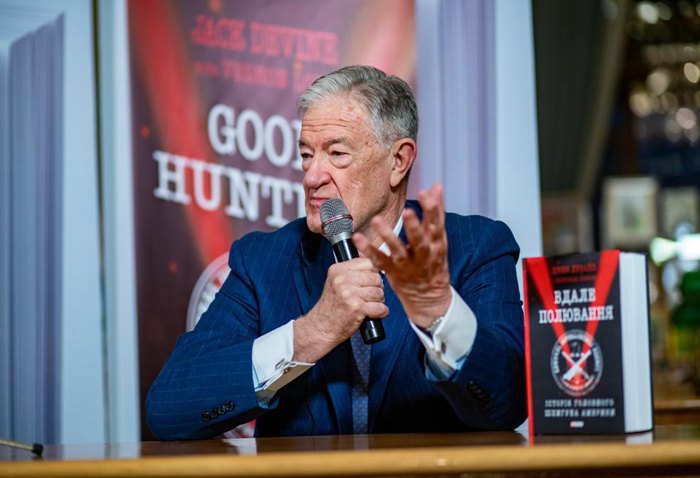
But even as early as World War I it was obvious that some governments (Germany, for instance) used mustard gas. Biological chemical warfare is not new. I would say most of the major countries and certainly Russia, China and the United States have the capacities to unleash viruses that are probably far more lethal than COVID-19. But we don't do it for the same reason we haven't had a nuclear exchange, because it's mutually destructive.
I know there are conspiratorial groups and theories, and there most likely are things already sitting in labs that are far more lethal that could be released. But it's self-destructive for any country to engage in that kind of warfare. So, I'm not a big believer in conspiracy theories like those.
But how did it happen the epidemic occurred in the central part of China - after all, all the previous five coronaviruses originated in the south of the state? And was it a coincidence that in the same Wuhan there are just two labs dealing with coronavirus?
I accept there's an issue of concern. But I look at this on a non-partisan, scientific basis. A multi-national examination of scientists at that level is much more persuasive until I see some concrete evidence to the contrary.
People are still talking about the epidemic of 1917, and though many believe it originated in Spain, we're now a hundred years later and still debating about its origin. I don't think the origin of the current coronavirus pandemic is going to be easily resolved.
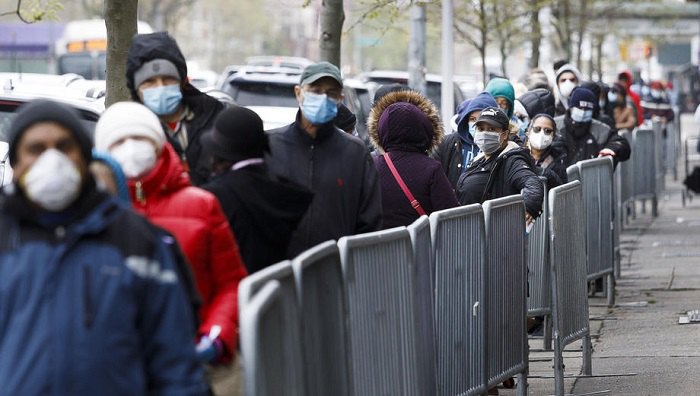
I've seen information that points to the fact that it started clearly in Wuhan and spread from that region. The Chinese moved quickly and shut it down. But in the process of doing so they denied the science community a real understanding of seriousness of it. I was looking at something the other day that was troubling about the Chinese going out into the market and buying huge quantities of masks and other equipment they already made. They were anticipating that pandemic before it reached international scale. So, the Chinese will probably come in for a lot of criticism as years go by. Not because they could avoid COVID-19, they will be criticized for the way they handled it.
This is one of the major differences between our system and theirs. In a democratic system it is much more difficult to conceal information and to undertake conspiracies. But in China, because you have an autocratic system, you can lock down information and stop it from flowing out. And this is unfortunate when you get into such a pandemic situation.
In the US, in North Carolina, Wuhan-like studies were conducted on coronavirus. There, American scientists cooperated with Chinese colleagues till 2015. This program was funded by the US government. Why was it closed by the Obama administration?
I don't really know the answer to that. Often it's a budgetary decision and it tends not to depend on the president. In other words, it’s likely the president was not even aware of the cuts taking place.
This is an impact of the 9/11 attack. I was down at the Wall Street area where the twin towers were. Right after that there was a lot of concern not in the United States, but around the world about where terrorists were going to use biological and chemical weapons. We spent a lot of time working with clients helping them prepare continuity crisis plans on how to work off-site.
Back to the coronavirus, there was an awareness the threat was there. However, as we've moved further and further away, scientists have continued to tell us there was a pandemic coming, but they've been saying that for 50 years. I do think there's a big lesson learned here, and every mayor and governor, and individuals too, will make sure they have ample supplies of all the things they need. I think there'll be an adjustment to be better prepared for future outbreaks.
As you know, viruses mutate and the next outbreak could be a lot more lethal. The virus is extremely contagious. But if it were as lethal as past pandemics, millions of people would have died.
Why do you think in 2018 the American authorities did not take seriously the dispatches of representatives of the US Embassy in China who were in these labs and declared their insecurity?
Once again, my instincts would tell me it's not man-made, so I'm going to stick with that until someone has more definitive data. As I recall, the US Embassy cable did not argue that the virus was engineered there, instead it reported that the Chinese were studying the Coronavirus that existed in nature to try to figure out ways to combat future outbreaks.
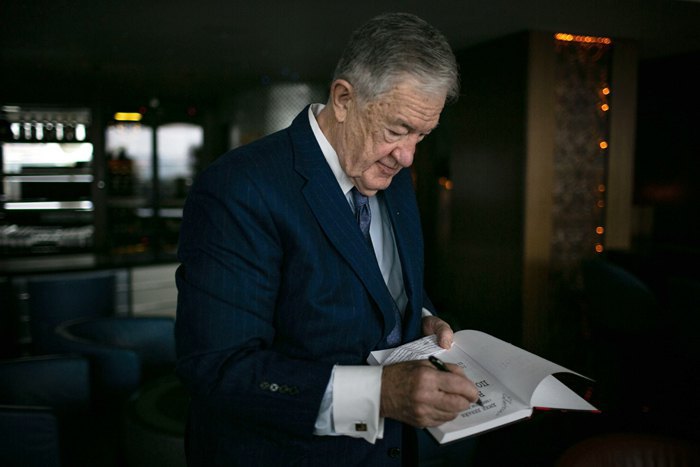
"I suspect America will be back in WHO"
President Trump and French President Macron, British Foreign Minister Raab have accused China of concealing data recently. Missouri Attorney General Eric Schmitt filed suit against China. What do you think, why the Chinese authorities have kept silent for months, if not more?
I'd like to keep underlining the importance of democracy versus a controlled autocratic state. The problem is in autocratic states there are fewer checks and balances. They control the data, and single-handedly decide what to do. In a democratic society there are too many players, so you have to negotiate with each of them.
In democratic societies there isn’t any interaction between the public world and the government one. Then consequently, they are more prone to make bad decisions. It was a bad decision on China’s part not to be frank and candid. It was also a bad decision not to be fully transparent with the World Health Organization (WHO) and regrettably, the WHO relied on the early faulty data.
Does it not seem strange to you that Beijing, fighting the coronavirus, was able to completely stop the protests in Hong Kong and moderate the discontent of the Taiwanese? Furthermore, all Taiwanese initiatives to provide early warning of the approach of a pandemic have been stopped by WHO and China.
The Taiwanese have every reason to be highly upset with the Chinese on how they handled coronavirus issues to the detriment of the WHO, which frankly provides a lot of good health support around the world. However, in this particular case the WHO relied too much on the Chinese data. And there wasn't enough transparency, the WHO didn’t put pressure on the Chinese, they allowed the Taiwanese to be pushed aside. It was steamrolled by politics.
It's an issue, the degree we can keep the WHO from becoming politicized. The Chinese role in all of that ought to be examined. The WHO needs to find a way they go forward to regain its credibility. But this performance was disappointing. If you have a World Health Organization that's going to be influenced by a country with an autocratic system, you're asking for trouble, because full transparency is critical if you’re going to mount an effective response to a health crisis.
President Trump accused the World Health Organization of delaying the epidemic of a new coronavirus and indicated the organization had failed in its pandemic prevention campaign. He stopped financing WHO. The US Secretary of State Mike Pompeo said the United States may not renew financial contribution to WHO. He also noted the WHO needs to be reformed. Do you think it was the right decision of the White House?
The WHO has some changes to make to regain its reputation. The United States is by far the largest supporter of the WHO providing $400 million. The Chinese invest around $80 million, but they’re using it for political purposes. We were hoping in the US that the WHO would just be working on the best science and it wouldn't become politicized.
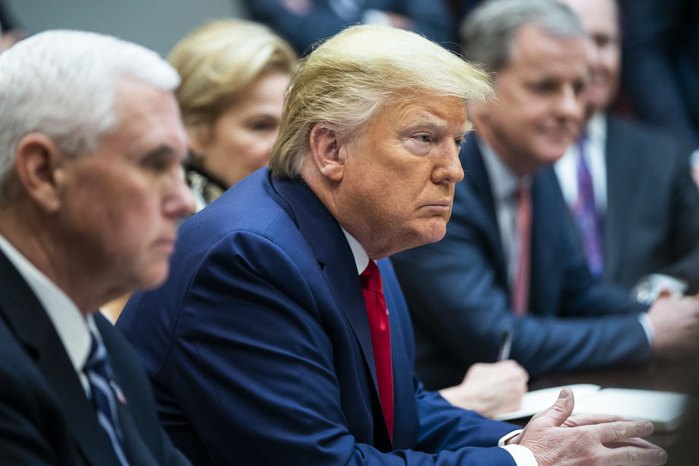
The United States has put down a marker. The WHO will really have a hard time being effective without American support. If I were the WHO, I would try to correct course. We have to find some accommodation here.
I suspect America will be back in the WHO, but it’s not going to go back to the status quo. Now it's too much in the public eye the role that China played and how the WHO came up short. The WHO has to go to the mountain and examine how can they find ways to increase their credibility and confidence, particularly in the United States, which is the hardest-hit country as a result of a virus that started in China.
There's not going to be a quick and easy accommodation, but if they don't accommodate, we can’t go back to business as usual. I would support the US administration's strong position. The WHO really came up short on this one.
American intelligence recorded Chinese intelligence agencies spread fakes in the US information space. Can we call this an interference in the internal affairs of the United States? Do you think US sanctions will follow against China, given that Beijing has more than a trillion dollars in US debt?
There are three countries who are pushing very hard to spread a lot of false information outside of their domains. I don't think it surprises you to know that the Chinese and the Russians and the Iranians are all saying the pandemic originated in the US because of sanctions. Some people would like to say they're working together, and I would say to you "no", but the three autocratic states that have a real problem with sanctions are all independently trying to use the crisis to their advantage. Frankly there's a tremendous amount of false news out there that supports their efforts. There won’t be any alleviation of the sanctions on those states until they change their behavior.
Coming to China more specifically, we have a huge relationship. China is an important player and we have to find ways to get along productively. The Trump administration tried to reset trade and progress is being made there. But there’s a big difference between a trade or military problem and a natural virus. You can't just roll over and let it go, therefore, we have to talk frankly to the Chinese about the need to change the ground rules going forward when things like this happen. This is not a situation in which sanctions are an appropriate response.
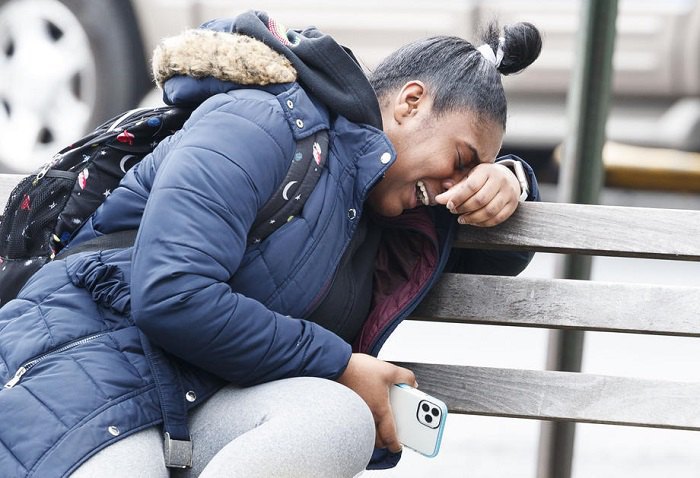
People are angry. A lot of people in the United States have died. There’s always a need to hold people accountable, and the Chinese should be held accountable on the merits of the accountability.
Anger has to be balanced with a practical understanding of how the world goes on. We all strive to have peace and not to have every country fighting every other country. Right now we still need tremendous cooperation among states on this virus. Around the edges there have been some interesting cooperative developments on things like vaccine and treatment research which we should be continuing going forward.
Countries are trying to help each other and that's the right spirit. However, there is a need for change at the World Health Organization. The Chinese have to be much more transparent.
The representatives of the Mossad, and then employees of the Israeli Foreign Ministry in a secret report said an undercover global war had begun at the level of special services for medicines and medical equipment. Is it so?
Israel has always been a country at the edge of crisis. It is surrounded by historical rivals and it has been under military threat from the beginning of its creation. They use their Intelligence Service in a different way: it’s smaller and it’s more focused on the survival of Israel in its neighborhood. If Israel needs something and doesn’t have enough, it sends the Service out, and they collect it.
The United States has a different Intelligence Service which has huge collection capabilities, and it has an actual action capability which history is replete with. But it doesn't use its capacities to pursue the objectives of civil organizations.
I do not anticipate a huge change in which the CIA would be tasked to do something similar. There are occasions and isolated incidents when all services have things that are outside of their normal remits, but our systemic approach will not change. Israelis probably are adopting its intelligence to their situation and we will probably continue our model.
"Putin’s Constitution is formalizing the reality that he's not giving up any territories"
You were that person who opposed the Chilean president, a proponent of leftist ideas, Allende during the Cold War. After him came the dictator Pinochet. He held a referendum at the end of his second term, changed the country's constitution, and extended his presidential powers for another eight years. After the second referendum, he was dismissed, but he received the status of a lifelong senator and guaranteed the influence of the military. Don’t you think Vladimir Putin, changing the constitution of the Russian Federation, following in the footsteps of Pinochet?
We have to look at it objectively. If you recall, Pinochet came to power via a coup d'etat. At that moment he was the dictator. In Chile they did have a junta, but he was the man in charge and his power never depreciated.
Putin started out at a fairly junior level in the government but little by little worked his way up in the senior positions and got close to Yeltsin. When he was first put into office by the seniors, they saw him as a trusted and controllable person. But by no means did he have the authority he has today. Over the years he has shown himself to be very adept at building a system that is more autocratic. Putin's relative power isn’t anywhere near as tight as Pinochet's control.
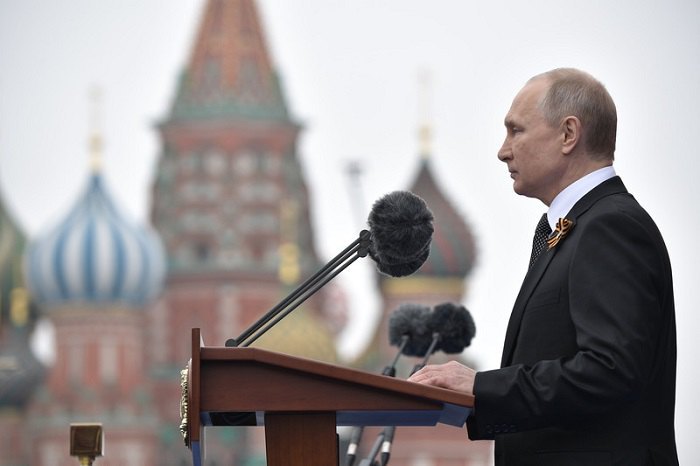
Having said that, each year Putin becomes stronger and stronger in terms of control. You can look at the Russian Constitution and have questions about different aspects of it, but basically, Putin will be around for as long as he's healthy and wishes to be. He has pretty well consolidated his position.
One of the many problems with autocratic governments is that they sow the seeds of their own weaknesses. The pandemic could become a serious problem for Russia. If the oil prices continue at very low levels, the Russian people surely will become disgruntled with the Putin regime.
When the economies of the world collapse because of a pandemic Putin needs to realize, that while he’s strong, he’s still very vulnerable. That said, Putin is the seat of power in Russia and I don’t see any challenge to that, at least for now.
Now Russia sends medical aid to Italy, the USA, declares the need for a cease-fire for the time of the pandemic, proposes new initiatives to the UN. Can we call this an attempt to lift the sanctions?
All of these countries suffer from sanctions: Russia, Venezuela, Iran, North Korea, China. One of their top national priorities is to roll those back but they have a very, very hard sell to achieve that in the context of the pandemic. The US would have to see behavioral changes in those countries. We are not going to ease up on sanctions and allow aggressive action by any of those nation-states.
In the new amendments to the Russian Constitution says about the origin of new non-federal territories. We can talk about the legitimization of the previously captured lands of Donbas, Abkhazia and Ossetia, their further accession. Do you think such a scenario plausible?
Back to the Constitution which is being drafted in Russia, it is a formalized document that only recognizes the reality of the system, particularly the idea that you can't give up territory. This is a reality. But if the situation were to change there, it's not guaranteed that Putin’s successors will follow the same path. For the interim, he's just formalizing the reality that he's not giving up any territories.
